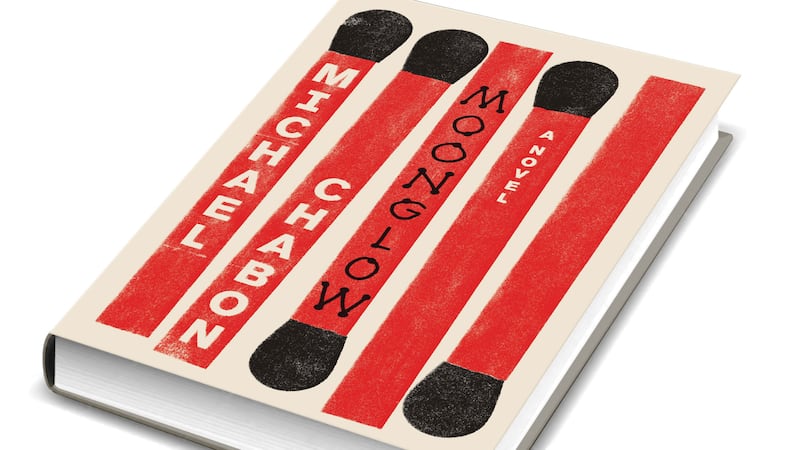BY ZACH MIDDLETON
If your memoir ain't factual, it ain't a memoir. So when Michael Chabon's elderly grandfather, zonked on Dilaudid and lying on his deathbed, decided to recount the events of his life to his starry-eyed grandson (a Pulitzer Prize-winning fictionist), the stage was set for a book that would pose as memoir but could only be something more mythical. The result is Moonglow (Harper, 448 pages, $28.99), a sort of Jewish John Wayne war story about a Greatest Generation hero with a strong back, restless mind and hot temper.
After a troubled childhood in the Jewish slums of South Philadelphia, which included having his first sexual experience with a tuberculosis-infected hermaphrodite, the protagonist (referred to simply as "my grandfather") joins the military and becomes an intelligence officer. Deployed in France, it's not long before he ventures off alone on a stolen motorcycle in search of the Nazi rocket scientist behind the fearsome V-2 rocket.
Chabon describes these things in haunting prose, saying, "[Grandfather] was accustomed by now to feeling grateful that when death settled like a flock of birds around him, it was other men and not him on whom it perched." Later, Grandfather is jailed for attempting to strangle his boss, but gets off when he accidentally kills another man. To Chabon, the violence in and out of combat is of a piece, relics of a time when war was hell and a man was a man.
The story of Chabon's refugee grandmother adds a welcome counterpoint to his stoic, surly grandfather. Having barely escaped the Nazis, she arrives in the United States with only two reminders of her homeland: her young daughter (Chabon's mother) and her concentration camp tattoo. An actress and a fey storyteller with a deck of tarot cards, she seems to be on track for a happy post-war life when she gets her own cooking show on public access TV. This is tragically cut short when the trauma of her past returns as schizophrenia—a hallucinated, skinless horse torments her all the way to the asylum.
To what degree these events are factual only Chabon knows. The dust jacket says it's "speculative autobiography," while the acknowledgments refer to it as a "pack of lies." But it's in the author's note that Chabon provides what may be the best description: "I have stuck to facts except for when facts refuse to conform with…the truth as I prefer to understand it."
Michael Chabon reads at Powell's City of Books, 1005 W Burnside St., powells.com, on Friday, Dec. 2. 7:30 pm. Free.
